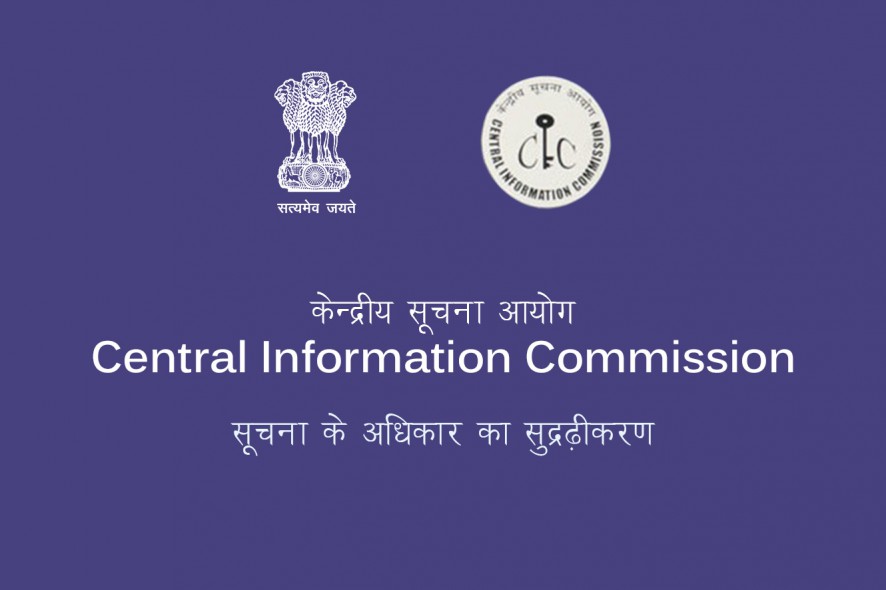Central Information Commission (CIC): Bimal Jhulka (Information Commissioner), disposed of an appeal expressing displeasure in regard to the way RTI Applications were being responded and further stated that,
“There is complete negligence and laxity in the public authority in dealing with the RTI applications. It is clear that such matters are being ignored and set aside without application of mind which reflects disrespect towards the RTI Act, 2005 itself.”
The facts of the present matter are that, the appellant vide his RTI application had sought information on few points in respect to NBCC, regarding the list with details of allottees who had been allotted covered parking space at NBCC, Vibgyor Towers as on 30-06-2006 and 25-02-2010; total number of covered parking space allotted and the vacant, if any and other issues related thereto.
CPIO informed the appellant that the RTI application was forwarded for seeking suitable information from the PIO concerned under the provisions of Sections 5(4) & 5(5) of the RTI Act, 2005. Dissatisfied by the said response, the appellant approached the FAA.
Further, the appellant reiterated the contents of the RTI application and stated that the information sought had not been received by him, till date. Respondent-NBCC submitted that on receipt of the RTI application, an interim reply was provided to the appellant. Respondent also added to its submissions that the CPIO, NBCC, Kolkata had to provide the information within the stipulated time and notice of hearing was also addressed to them.
Appellant while contesting the above averments of the respondent submitted that he had not received any information till date, neither from the CPIO nor from the FAA, which was in contravention to the provisions of RTI Act, 2005.
Respondent while explaining the background of the matter informed that the Flats and Parking in the said Tower were also sold on the basis of the open lottery amongst the Applicants. To this, the appellant contested that so far he had not received any such letters regarding draw of the lottery for covered/ open parking. He also added that he desired all the information relating to the publication of draw of lottery/selection of open and covered parking/ announcement, etc.
However, the respondent agreed to forward the entire correspondences held with them to the appellant once again. On being queried by the Commission “whether the details relating to the allotment of flats/building plan/allottees details/procedure followed for allotment of covered parking and designation of the competent authority having power of deviating the Rules,” respondent replied in the negative and agreed to put it in the public domain.
Commission’s Observation
Commission while referring to the decision of Mujubur Rehman v. CIC, WP (C) 3845 of 2007, stated that timely response is the essence of RTI mechanism enacted to ensure transparency and accountability in the working of Public Authorities.
With regard to providing a clear and cogent response to the Appellant, the Commission referred to the decision of JP Aggarwal v. Union of India, WP (C) 7232 of 2009.
Commission observed that, a voluntary disclosure of all information such as the details relating to allotment of flats/building plan/ allottees detail/ procedure followed fro allotment of covered parking/name and the designation of the competent authority having power of deviating the Rules that ought to be displayed in the public domain should be the rule and members of public who having to seek information should be an exception.
“Open Government, which is the cherished objective of the RTI Act, can be realised only if all public offices comply with proactive disclosure norms. Section 4(2) of the RTI Act mandates every public authority to provide as much information suo-motu to the public at regular intervals through various means of communications, including the internet, so that the public need not resort to the use of RTI Act.”
Supreme Court decision in CBSE v. Aditya Bandopadhyay, (2011) 8 SCC 497, was also cited in which it stated that,
“The right to information is a cherished right. Information and right to information are intended to be formidable tools in the hands of responsible citizens to fight corruption and to bring in transparency and accountability.”
Adding to the above, Commission in regard to the larger public interest involved in the matter, referred to the decision of Supreme Court in Bihar Public Service Commission v. Saiyed Hussain Abbas Rizwi, (2012) 13 SCC 61, while explaining the term “Public Interest”.
Commission expressed its displeasure on the casual and callous approach adopted by the respondent in responding to the RTI application. It was felt that the conduct of the Respondent was against the spirit of the RTI Act, 2005 which was enacted to ensure greater transparency and effective access to the information.
Direction issued by the Commission pertaining to the matter
Commission directed the respondent to furnish a set of entire correspondences held with them to the appellant as per the provisions of the RTI Act, 2005 within a period 15 days.
CPIO, Kolkata was warned to be extremely careful and vigilant in handling RTI petition in future, failing to which Commission would initiate penal action under Section 20(1) of the RTI Act, 2005.
It was also noted that FAA had not acted in accordance with the provisions of RTI Act, 2005 and therefore is advised to be alert and cautious in the implementation of the RTI Act, 2005 with due diligence and care.
Commission also instructs the Respondent Public Authority to convene periodic conferences/seminars to sensitize, familiarize and educate the concerned officials about the relevant provisions of the RTI Act, 2005 for effective discharge of its duties and responsibilities.
Thus, in view of the above terms, the appeal stands disposed. [Kushal Saha v. CPIO, NBCC, 2019 SCC OnLine CIC 1148, decided on 13-09-2019]






